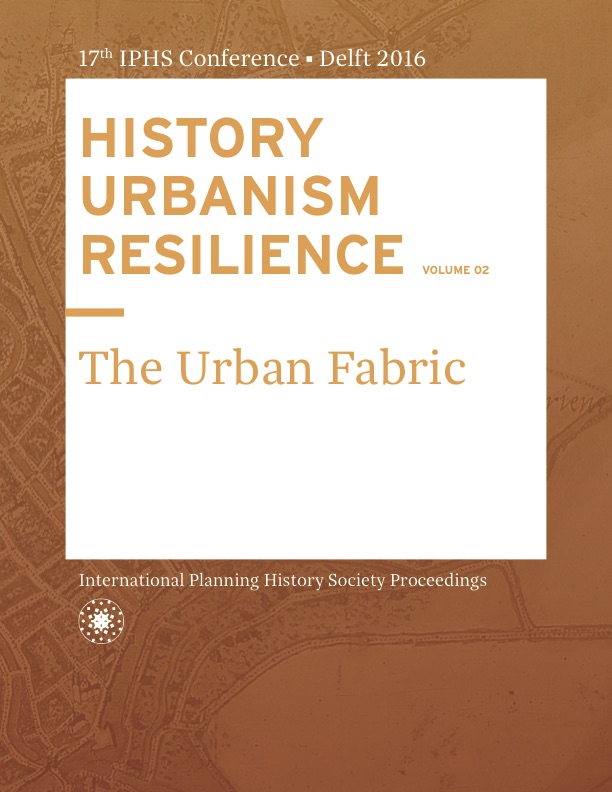The city as an environmental assets intended to satisfy people’s healthy quality of life in contrast to the irregular occupation of land in Brazil
DOI:
https://doi.org/10.7480/iphs.2016.2.1240Abstract
The Brazilian urban development has created a lack of housing and irregular settlements in some urban centers which are problems caused by the inefficacy of the land reform, the industrialization process, the rural exodus and the lack of urban planning. With the 1988 Federal Constitution the city with its two realities, regular and irregular establishments, takes on the legal nature of an environmental good, having the social function of property (article 5, section XXIII, Federal Constitution), the capitalist economic system and the respect for human being dignity (article 1, sections III and IV, Federal Constitution) as guiding principles. That way, the private and public good binomial doesn’t have to be treated under the legal structure of the environmental good (article 225, Federal Constitution), which provides an immediate tutelage according to articles 182 and 183 of the Federal Constitution.This article intends to show the historical evolution of the right to property and housing until it reached the current Brazilian urban scenario, which complies with Law 10257/01.
Such structure requires that the clash between the right to property, the right to housing and the ecologically balanced environment, which makes for a healthy life quality, be analyzed.
So how can the right to housing be guaranteed and the ecologically balanced environment be ensured? To try to answer this question, we will look into the Collective Urban Acquisitive Prescription which we think provides the social function of property and the right to housing with efficacy, allowing the regularization of irregular areas and later urbanization.
Property is a fundamental right, guiding the economic order, laid down in article 5, section XXII, and article 170, section II, in the 1988 Federal Constitution. With clear social dimensions, established in article 5, section XXIII, in the 1988 Federal Constitution, the exercise of the domain attributes is now subject to the social interest.
Therefore, the right to property is now seen as subject to limitations created by the Constitution itself, acquiring a new function, where the well-being of the community is related to the social function of the urban and city property, which through the use of the City Statute tools, such as the collective acquisitive prescription, allows for the organization of the urban space, which in turn is directly connected with the healthy quality of life.
Thus, strong harmonic movements demand everybody’s participation in the decision-making process to break conservative barriers concerning the topic. The article will be based on the Brazilian Federal Constitution, the City Statute and reference work.
References
Custódio, André Viana; VIEIRA, Reginaldo de Souza. Estado, política e direito: políticas públicas e direitos sociais. V.3. Criciúma: Ed. UNESC, 2011.
Farias, Cristiano Chaves de; ROSENVALD, Nelson; CÂMARA, Alexandre Freitas. Curso de direito civil: volume 5: direitos reais. Salvador: Editora JusPodivm, 2014.
Medauar, Odete. Diretrizes Gerais. In: MEDAUAR, Odete; ALMEIDA, Fernando Dias Menezes de (Coords.). Estatuto da Cidade: Lei nº 10.257, de 10.07.2001, comentários. 2a ed. São Paulo: Revista dos Tribunais, 2004.
Maricato, Ermínia. “O que fazer com a cidade ilegal?”In: Revista de Direito Imobiliário, São Paulo v.25, nº 52, jan./jun. 2002.
Mukai, Toshio. O Estatuto da Cidade, o Plano Diretor e o Desenvolvimento Urbano. In: MUKAI, Toshio (Coord.) Temas atuais de Direito Urbanístico e Ambiental. Belo Horizonte: Fórum, 2004.
Osório, Letícia Marques. Direito à moradia adequada na América Latina. In: ALFONSIN, Betânia; Fernandes, Edésio (Orgs.) Direito à moradia e segurança da posse no Estatuto da Cidade. Belo Horizonte: Fórum, 2004.
Rodrigues, Ruben Tedeschi. Comentários ao Estatuto da Cidade. Campinas: Millennium, 2002.
Saule Junior, Nelson (coord.). O direito a moradia como responsabilidade do Estado brasileiro. Direito à cidade: trilhas legais para o direito as cidades sustentáveis. São Paulo: Editora Max Limonad, 1999.
Silva, José Afonso da. Direito Urbanístico Brasileiro. 5ª Ed.São Paulo: Malheiros, 2008.
Silva, José Afonso da. Curso de Direito Constitucional Positivo. 34ª ed. São Paulo: Malheiros, 2011.

